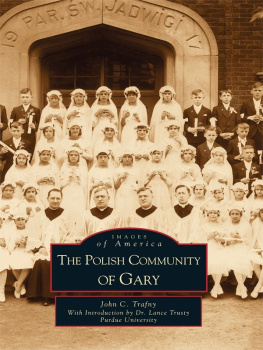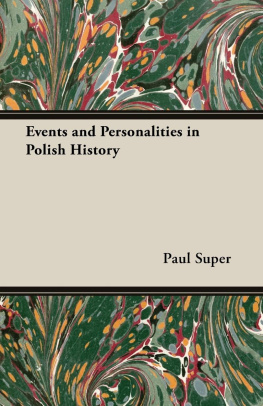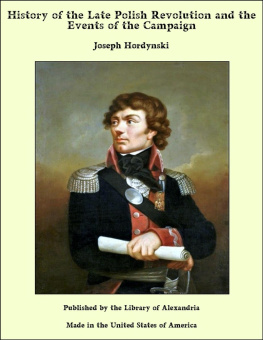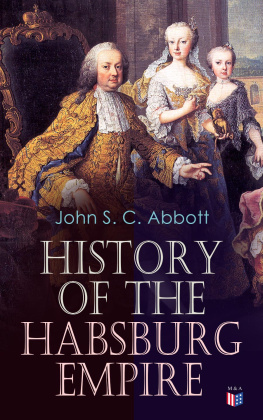A History of the Polish Americans
A History of the Polish Americans
John J. Bukowczyk
With a new introduction by the author
Originally published in 1987 by Indiana University Press.
Published 2008 by Transaction Publishers
Published 2017 by Routledge
2 Park Square, Milton Park, Abingdon, Oxon OX14 4RN
711 Third Avenue, New York, NY 10017, USA
Routledge is an imprint of the Taylor & Francis Group, an informa business
Copyright 2008 by John J. Bukowczyk
The poem, When I Journeyed from America is reprinted from Merrily We Sing: 105 Polish Folksongs, edited by Harriet M. Pawlowska, 1961, by permission of Wayne State University Press.
Cover photo: Polish wedding portrait (Milwaukee, undated), Roman B. J. Kwasniewski Photographs. UWM Manuscript Collection 19. University of Wisconsin-Milwaukee Libraries, Archives Department.
All rights reserved. No part of this book may be reprinted or reproduced or utilised in any form or by any electronic, mechanical, or other means, now known or hereafter invented, including photocopying and recording, or in any information storage or retrieval system, without permission in writing from the publishers.
Notice:
Product or corporate names may be trademarks or registered trademarks, and are used only for identification and explanation without intent to infringe.
Library of Congress Catalog Number: 2008015351
Library of Congress Cataloging-in-Publication Data
Bukowczyk, John J., 1950-
A history of the Polish Americans / John J. Bukowczyk.
p. cm.
Originally published: Bloomington : Indiana University Press, c1987. With title: And my children did not know me.
Includes bibliographical references and index.
ISBN 978-1-4128-0680-0 (alk. paper)
1. Polish Americans--History. I. Bukowczyk, John J., 1950- And my children did not know me. II. Title.
E184.P7B84 2008
973.049185--dc22
2008015351
ISBN 13: 978-1-4128-0680-0 (pbk)
To my parents, Stella Wegrzyn and Joseph Bukowczyk,
and
to my grandparents, Mary Wegrzyn and John Wegrzyn, and to my second cousins, Louie and Lily Rose, Greek/Irish/Polish-Americans, or just plain Americans?When I Journeyed from America
When I journeyed from America
And the foundry where I labored,
In prayr my hands thanked our Father,
Hands that never shirked their labor.
Soon I came to New York City,
To the agent for my passage.
And the agents asked me if I
Had three hundred dollars with me.
Ask me not such foolish questions.
For I carry gold and silver.
When I crossed the ocean midway,
No land could I see, sweet Virgin.
Our ships captain was right busy,
Seeing, cheering all the people.
When I laid my eyes on Hamburg,
I thought I saw God Almighty.
When at last I landed safely,
Lord, I prayed, I thank thee for this.
O how grateful am I, dear God,
That Ive crossed the ocean safely.
Berlin came next after Hamburg,
Barmaid, I will have some good wine.
Then I left Berlin for Krakow;
There my wife was waiting for me.
And my children did not know me,
For they fled from me, a stranger.
My dear children, Im your papa;
Three long years I have not seen you.
CONTENTS
PRONUNCIATION OF POLISH NAMES
1. From Hunger, for Bread
Rural Poland in the Throes of Change
2. To Field, Mine, and Factory
Work and Family in Polish America
3. Hands Clasped, Fists Clenched
Unity and Strife in the Immigrant Community
4. Continuity and Change in the 1920s and 1930s
From Polish to Polish-American
5. The Decline of the Urban Ethnic Enclave
Polish America Transformed, WW Il-Present
6. What Is a Polish-American?
The Revival of Ethnic Identity
7. Vanguard or Rearguard?
Ethnic Politics in Mass Society
MAPS
It sank into me that the currency of our names is a stroke of luck: because mine was not an easy name, it forced me to consider how language would rule me if I allowed it.
Manuel Muoz
The project to write a book on the history of Polish Americans was proposed to me in the early 1980s by a series editor at Indiana University Press amidst a growing scholarly interest in the history of those ethnic communities created by the mass migration of Eastern, Southern, and Central Europeans to the United States in the late nineteenth and early twentieth century and in the aftermath of the rise of what many observers at the time had termed the new ethnicity, a resurgence in ethnic consciousness among the grandchildren and great grandchildren of the immigrants.
Scholars of the Polish-American experience accordingly have associated the book with that strand of revisionist group scholarship that sought to recover and, in a sense, celebrate the working-class Polish-American ethnic experience, what Radzilowski somewhat wryly called the Detroit School of Polish-American historiography after an American rustbelt city that once epitomized blue-collar America. Perhaps acknowledging these various influences in the introduction might have made my book more accessible to general readers and connected it more directly to a wider historiography, as the book then, as now, attempts to speak to issues in the history of all ethnic and racial groups, not just narrowly to Polish Americans (although one reviewer criticized the book precisely for being so broadly cast).
The candor, passion, and enthusiasm of And My Children Did Not Know Me marked it as a work that could have been produced only by a young scholar who still believed hotly in the malleability of social and cultural categories, the breadth of political and intellectual possibilities, and the transformative power of ideas. Its author no longer a young man, the tone of the book unavoidably would have been different if written today, although I am not certain that, as books are read and judged, it would have been a better book for greater qualification, nuance, completeness, or documentation. Although somewhat romantic in tenor, its knowing preoccupation with conflict, class, and loss made the colors of the book admittedly rather dark, as Thaddeus Radzilowski remarked, but even now I would not replace the approach taken then with the cheery ethnic folk clichs of religion, family, neighborhood, food, and home that the members of most ethnic groups claim as unique characteristics of their own particular group and whose familiar tastes, smells, and sounds still strike a warm, nostalgic chord. Rather, the glass of Polish-American ethnicity the book served up was already half empty, cracked, and leaking badly.
As a social-historical work, the book also might have looked more broadly and comprehensively at the various populations, of diverse ethnoreligious backgrounds, that emigrated from the lands of partitioned Poland in the late nineteenth and early twentieth centuries. Indeed, the book was cognizant of such diversity in Poland and in the emigration and did examine the process referred to by sociologists as ethnicization, the ways in which, in the American context, ethnic identity formed by melding ethnicity and religion and, in the Polish case, specifically saw the identification of Polishness with Roman Catholicism. Beyond this, the books Polish ethnic focus seems a legitimate one. One only need remember that during the pre-World War I heyday of the mass economic migration from Europe, Poland was not an independent nation-state with citizenship defined by nativity within its boundaries, but consisted rather in three foreign-occupied partitions whose inhabitants were foreign subjects. The migration streams emanating from pre-World War I Poland therefore did not carry Poles (in the sense of Polish citizens of various ethnic and religious backgrounds), but instead ethnic Poles, ethnic Ukrainians, ethnic Germans, Jews, Gypsies, etc., and the book legitimately elected to examine one such stream, the ethnic Polish one.









